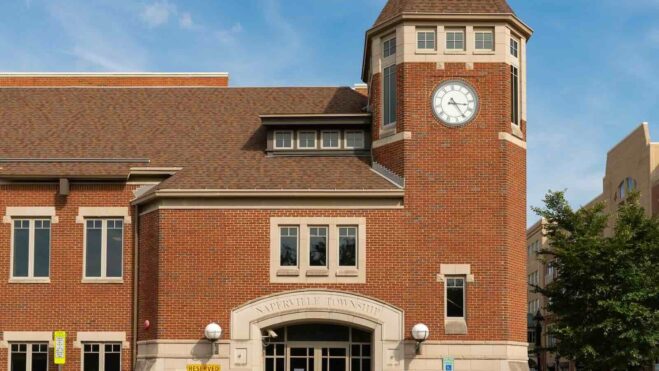The Radical Massachusetts Sports Betting Bill Wasn’t Designed To Pass — So What’s Its Purpose?
The ‘kitchen sink’ approach may result in some elements gaining traction even as the bill itself fails
3 min

So, there was a gambling bill filed recently in Massachusetts.
A doozy of a bill.
A bill that even has some of the most pro-responsible gambling experts in the industry raising an eyebrow — or perhaps even rolling their eyes.
Introduced by state Sen. John Keenan, SD 1657 would drastically alter the Massachusetts sports betting market in a way no piece of gambling legislation ever has before to any U.S. market. It’s so radical, featuring some never-before-discussed measures presumably designed with responsible gambling in mind, that industry insiders don’t think Keenan ever intended for it to pass.
“Certainly not going to pass,” sports betting consultant Dustin Gouker told Casino Reports. “It would have tons of lobbying against it, including DraftKings in its home state, and little lobbying for it.”
So, then, what was Keenan’s motivation?
What SD 1657 would actually do
First, real quick, here are the main tenets of the bill generating discussion right now. It would …
- Increase Massachusetts’ sports betting tax rate from 20% to 51%
- Ban sports betting ads during televised sporting events
- Ban live betting
- Ban prop betting
- Consider bonuses and same-game parlays as unfair and deceptive practices
- Establish affordability checks for gamblers and limit betting activity to 15% of the customer’s bank account
- Ban any type of compensation based on a customer’s gambling activity
- Establish betting limits of $1,000 per day and $10,000 per month maximum
Tax hike ‘most grounded in reality’
Of all those main facets, “the proposed tax increase is the most grounded in reality,” Matthew Chaprales, a senior advisor to GMA Consulting and the former head of content for PointsBet, told Casino Reports, “given what we’ve already seen in Ohio and Illinois and the presence of similar ongoing discussions in other states.”
Ohio’s jump was from 10% to 20% in 2023. In Illinois, the progressive tax rate would, at its most dramatic, increase an operator’s tax rate from 15% to 40%. Maryland is also considering a tax hike from 15% to 30%. In Indiana, lawmakers are considering a more modest increase from 9.5% to 11%.
A 51% tax rate in Massachusetts would tie it with New York for the highest in the U.S. among states that don’t have an operator monopoly.
Of course, Chaprales said, New York can get away with that tax rate. Its market is so large that the state can essentially do whatever it wants and operators will bend the knee.
“Massachusetts ain’t New York,” Chaprales said.
So, again, Keenan likely knows Massachusetts will never hike up its rate all the way to 51%.
But perhaps introducing this bill, igniting this conversation, makes 25%, 30%, even 35% more realistic or palatable down the line.
“It stands to reason he’s ultimately trying to arrive at a real discussion of tax structure,” Chaprales said. “Which would square with what has certainly been a bigger focus throughout other state legislatures over the past 12-18 months.”
Chaprales noted that this also isn’t Keenan’s first attempt to increase the sports betting tax rate in Massachusetts. In spring 2024, the lawmaker representing the Norfolk and Plymouth district proposed a state budget amendment that would have also jacked the sports betting tax rate up from 20% to 51%.
“This latest foray is notable given the radical and in some cases ludicrous components of the bill,” Chaprales said.
He added: “A 10-leg parlay is more realistic than a 51% tax rate.”
Bill uses ‘kitchen sink approach’ and hopes something will stick
Gouker called Keenan’s bill the “kitchen sink” approach to “kill the legal online sports betting industry without outright banning it” — where the lawmaker flooded the bill with far-reaching policies in hopes that one, or a handful, or at least a toned-down version of any of the policies, would take hold in Massachusetts or elsewhere in the U.S.
“The more the measures are talked about at the state and federal level, the more certain parts of it could gain traction in legislatures across the country,” Gouker said. “Maybe lawmakers in one place think banning live betting is a good idea for responsible gaming. Maybe someone else wants to stop prop betting to slow athlete harassment.”
So, like Chaprales, Gouker doesn’t think Keenan ever really thought SD 1657 would pass.
But it’s already doing what Gouker says Keenan intended: People are talking about it. A lot.
And any discussion of a policy — even if people are saying it’s unrealistic — gives it air time and visibility to lawmakers and power-brokers across the U.S. who may ultimately have the opportunity to vote on similar measures in the future.
“The danger and the angle of the legislation is to get more momentum for anything in this bill, not necessarily all of it,” Gouker said. “[The danger] is in spreading the various ideas of the bill and getting adoption elsewhere that would chip away at the ability of regulated sportsbooks to do business.
“Not all of the stuff in this bill is bad policy, but most of it is.”






